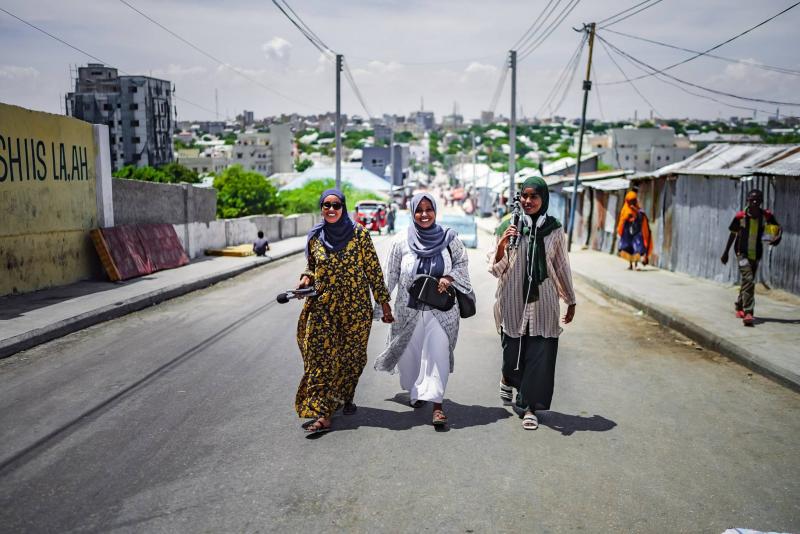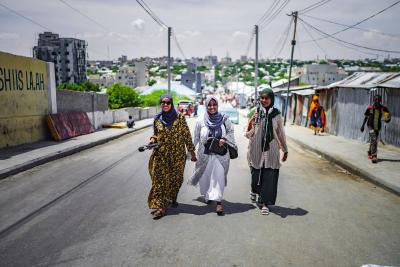People often laugh when Fathia Mohamed Ahmed tells them that she manages the first and only news room in Somalia that employs only women, in one of the most dangerous places on earth for journalists. However, the Bilan media team that Fathia leads as editor-in-chief is anything but a source of ridicule, as it delivers a daily mix of serious news and in-depth reports to both the local and sometimes global audience.
In nearly 18 months of operation, the Bilan team, whose name means "to shed light," has overcome bias and insecurity to highlight some of the most taboo topics in Somalia, such as drug abuse among women, albinism, women living with HIV/AIDS, and the stigma surrounding menstruation. Fathia said, "Sometimes my inner voice tells me that I cannot continue working due to insecurity and social pressures. However, this is a field I have loved since childhood, and it remains a dream for me."
Despite support from the United Nations Development Programme, success did not come easily or without risks for Fathia and her team. With more than 50 journalists killed there since 2010, Somalia is considered the most dangerous country for journalists in Africa, according to Reporters Without Borders. The Committee to Protect Journalists ranks Somalia last on its global index of impunity, which tracks the percentage of journalist killings that remain unsolved in relation to the country's population.
Fathia noted that in such a male-dominated society, some people struggle to discuss women's issues publicly. Others complain that Bilan's stories tarnish the country's reputation. She said, "We know that for Somalis, issues concerning girls are a source of shame... for instance, signs of puberty like menstruation. Girls are not educated about the symptoms of femininity in classrooms."
A story about the stigma associated with menstruation became one of Bilan's most popular pieces when it aired earlier this year, garnering more than 130,000 views and dozens of comments on Facebook. Maria Abdullah Jama, a 19-year-old student at a school in Mogadishu, stated, "I felt scared when I wanted to tell the teacher about my personal problems. I couldn’t express my issue... I urge female students not to feel ashamed and afraid."
The story prompted the Ministry of Women’s Affairs to offer to collaborate on an advocacy campaign. Abdallah Aldardari, director of the UNDP's regional office for Arab countries, stated that Bilan is revolutionizing the news agenda in Somalia. He added, "With their unique voice and the growing prominence of the Bilan media brand, they are generating an undeniable demand for change and better treatment of women and girls."




